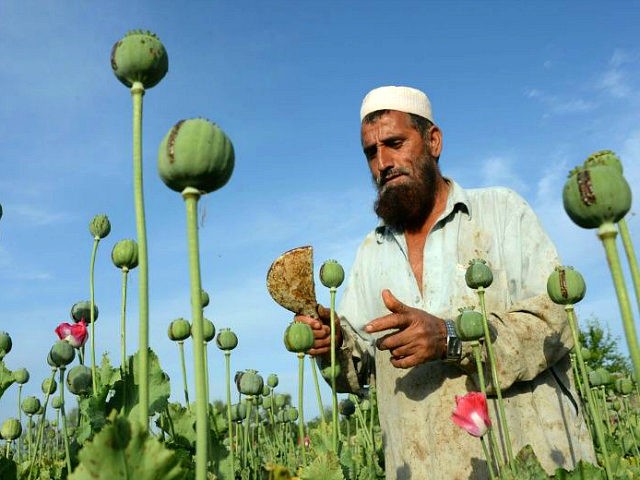The Islamic State (ISIL/IS) is eradicating Afghan opium and heroin production, a major source of revenue for their rival the Taliban, arguing that it is illegal, Voice of America (VOA) has learned from farmers of the illicit crop the eastern part of the country.
In Afghanistan, the Islamic State’s Khorasan Province, or ISIL-K, “has reportedly destroyed opium plants used for heroin production in Nangarhar’s Achin and Dehbala districts and has warned farmers to find another cash crop,” notes VOA.
U.S. defense officials believe the presence of ISIL-K is primarily concentrated in and around the eastern Afghan province of Nangarhar, which lies on the border with Pakistan where the jihadist group also maintains a presence.
“IS eradicated our poppy crop because they say it is illegal,” said Nawab, a local farmer identified by first name only. “I had a one-hectare well-grown poppy field. I did not grow wheat, and now I lost the poppy as well.”
The Islamic State has obliterated poppy fields in the district and apprehended a number of local growers, according to Mohammad Naeem, an Achin resident.
“They say this plant is Haram [prohibited in Islam]… people had cultivated poppy in a few villages but it has been destroyed,” he told VOA.
Although the United States has provided $8.5 billion to combat the illicit crop in Afghanistan since the beginning of the war in October 2001, the United Nations points out that Afghanistan remains the number one producer of opium, yielding between 80 and 90 percent of world’s output over the past decade.
In other words, despite billions of U.S. taxpayer funds spent, the efforts to combat poppy cultivation in Afghanistan have largely failed.
The Taliban reaps at least $100 million annually in revenue from the opium and opiate (heroin, morphine) trade. Those funds have helped the Taliban fight on for over 15 years.
The Afghan government has not yet confirmed the reports that ISIS is eradicating opium and heroin, acknowledges VOA.
However, VOA quoted a spokesperson for the governor of Nangarhar as saying, “Poppy plants have been cultivated for decades in some remote areas once controlled by the Taliban insurgent group, but now under IS rule.”
In October 2014, the Special Inspector General for Afghanistan Reconstruction (SIGAR), a watchdog appointed by Congress, reported:
Afghanistan is by far the world’s largest source of opium, producing over 90% of global supply. Opium production accordingly plays a key role in the political economy of Afghanistan. While occupying less than 3% of land under cultivation, opium is Afghanistan’s most valuable cash crop, and opiates—opium, morphine, and heroin—are its largest export, with an estimated value of $3 billion at border prices.
Furthermore, the opium economy directly provides up to 411,000 full-time-equivalent jobs—more than the entire Afghan National Security Forces (ANSF)—and supports additional secondary-effect jobs in the licit economy.

COMMENTS
Please let us know if you're having issues with commenting.